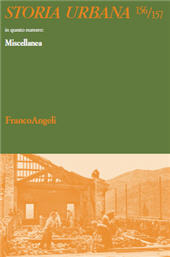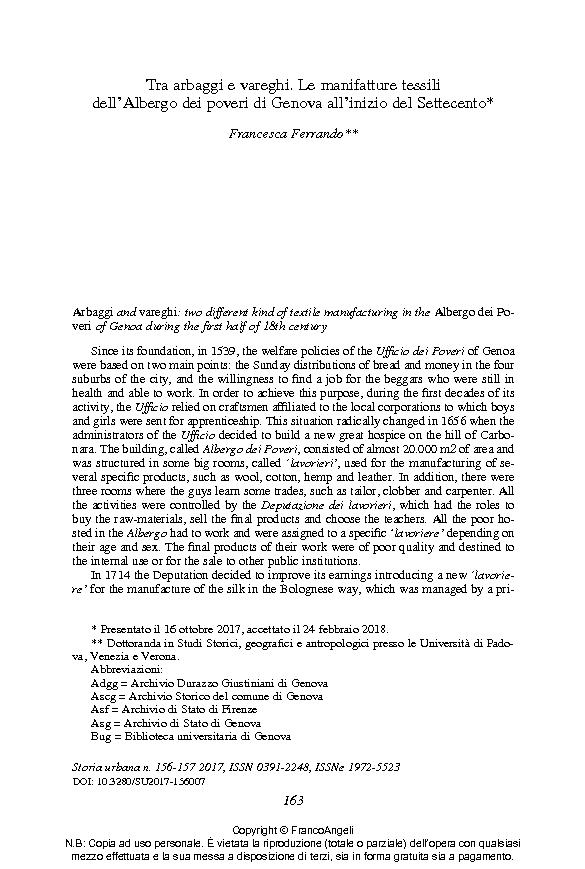Tra arbaggi e vareghi : le manifatture tessili dell'Albergo dei poveri di Genova all'inizio del Settecento
163-185 p.
Since its foundation, in 1539, the welfare policies of the Ufficio dei Poveri of Genoa were based on two main points: the Sunday distributions of bread and money in the four suburbs of the city, and the willingness to find a job for the beggars who were still in health and able to work. In order to achieve this purpose, during the first decades of its activity, the Ufficio relied on craftsmen affiliated to the local corporations to which boys and girls were sent for apprenticeship. This situation radically changed in 1656 when the administrators of the Ufficio decided to build a new great hospice on the hill of Carbonara. The building, called Albergo dei Poveri, consisted of almost 20.000 m2 of area and was structured in some big rooms, called âÂlavorieri', used for the manufacturing of several specific products, such as wool, cotton, hemp and leather. In addition, there were three rooms where the guys learn some trades, such as tailor, clobber and carpenter.
All the activities were controlled by the Deputazione dei lavorieri, which had the roles to buy the raw-materials, sell the final products and choose the teachers. All the poor hosted in the Albergo had to work and were assigned to a specific 'lavoriere' depending on their age and sex. The final products of their work were of poor quality and destined to the internal use or for the sale to other public institutions. In 1714 the Deputation decided to improve its earnings introducing a new 'lavoriere' for the manufacture of the silk in the Bolognese way, which was managed by a pri vate entrepreneur, the aristocrat Gaetano Giuseppe Asplanati. The present paper aims at highlighting the characteristics of this kind of production management in comparison to the classic model of wool's manufacturing, through the analysis of some unpublished documents kept in the Albergo dei Poveri's archive.
Among the contracts stipulated by the Ufficio dei Poveri and Asplanati and the contracts regarding the sale in the other 'lavorieri', in fact, it is possible to point out some important elements regarding the salaries and the life conditions of the workers. In addition, the account registers of that period, allow us to reconstruct all the phases of the production and to identify the buyers, in order to understand if the productive strategies carried on by the Ufficio dei Poveri had success or not. [Publishers' text].
Fait partie de
Storia urbana : rivista di studi sulle trasformazioni della città e del territorio in età moderna : 156/157, 5/6, 2017-
Articles du même numéro (disponibles individuellement)
-
Informations
Code DOI : 10.3280/SU2017-156007
ISSN: 1972-5523
DISCIPLINES
KEYWORDS
- Textile manufacture, welfare history, beggars, Genoa, early modern history



